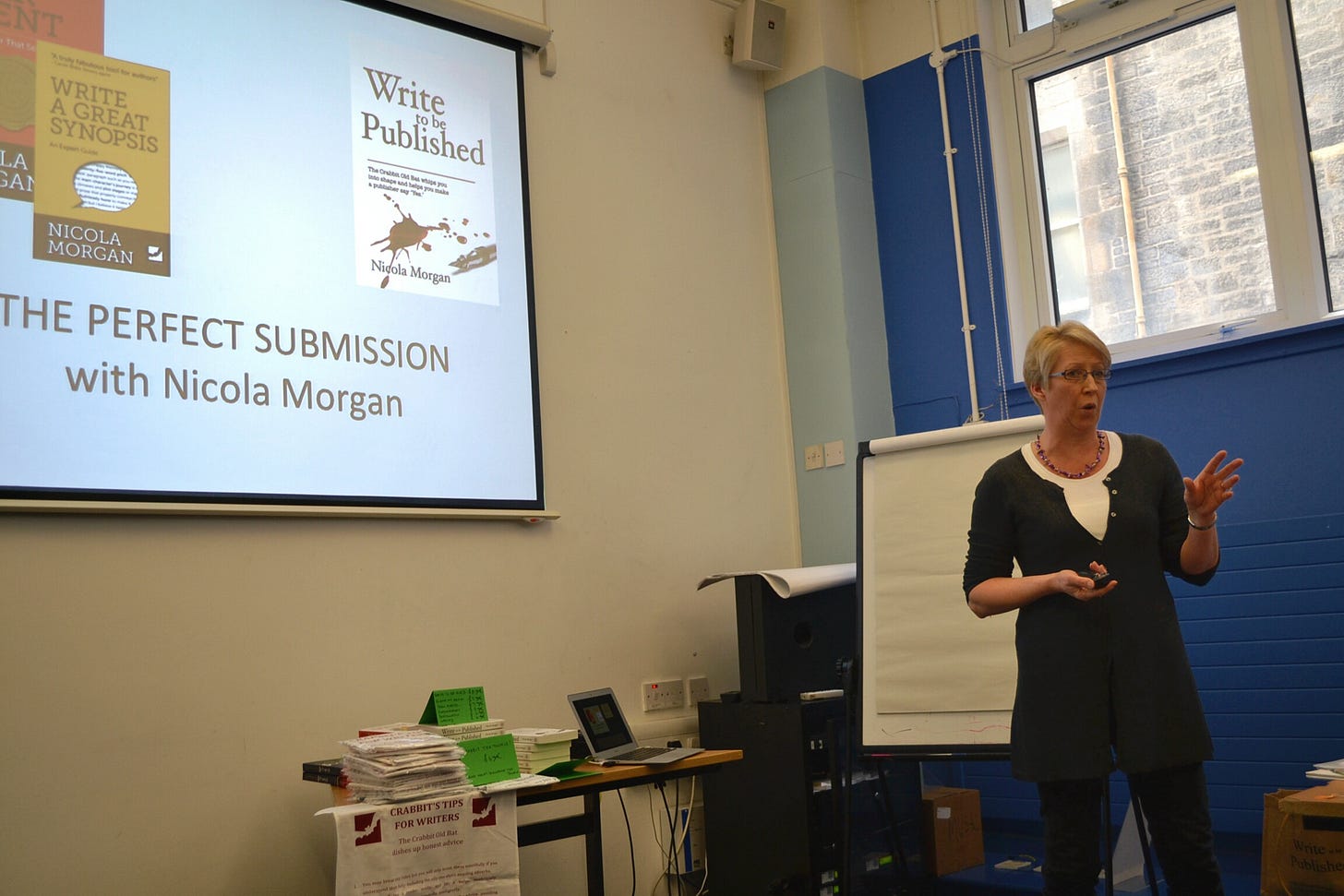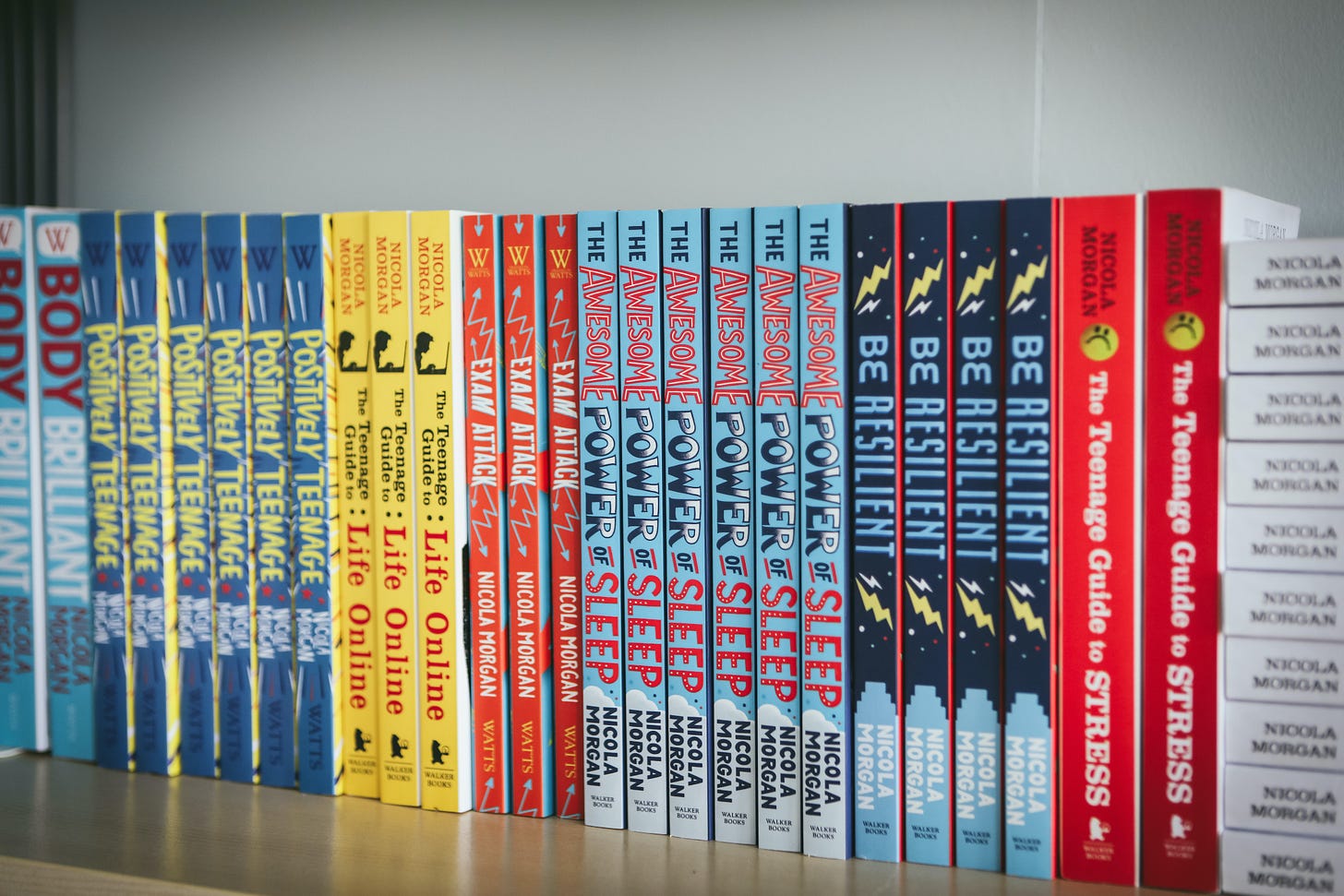If you’ve been reading the previous instalments in this series - you have, haven’t you? - you’ll have gleaned aspects of this. But it’s such a crucial topic that I need to pull the points together and make it crystal clear. If you’re just writing for yourself and perhaps your family and friends, you can stop reading. The advice here might improve your writing but it might not. What it will do is improve your chances of publication.
The new power of the acquisitions meeting
In the old days we would have looked only at how to move your book from your desk to a commissioning editor’s desk, where the decision would be made. I’d simply be telling you how to approach that commissioning editor, what to show them and what to say. That commissioning editor would be the one making the decision, usually with wine, and they would then tell the other departments, including marketing and publicity, about your book which everyone would soon be excited about selling. You wouldn’t need to know about the acquisitions meeting because once the commissioning editor had decided to love your book, that meeting was little more than a rubber stamping activity.
Now, however, the acquisitions meeting is the cliff-edge, unpredictable, terrifying (also for the editor) moment when the sales and marketing people decide whether the commissioning editor’s opinion is going to be allowed to hold sway. And very often it doesn’t.
The commissioning editor has to persuade a whole load of cynical people who don’t think your book is worth their effort that it is not only going to be worth their effort but that their effort will not need to be enormous.
I am not insulting these professionals by saying that they don’t want a book that is hard to sell. Why would they?
So, think about what they want
A book they know how to sell - because they’ve sold this sort of book before or someone else has and it has sold in bucketloads.
A book that fits their lists more than fills gaps in their lists. Too many authors think publishers are looking to fill their gaps - they might occasionally be but more often the gaps are there for a good reason. Publishers rightly focus on certain types of book and not others.
An author who is marketable - there are all sorts of ways in which you might be easier or harder to market but you need to at least seem as though you will try to be. You don’t have to be glamorous and full of youth and/or charisma but any or all of those things can help - but there’s little you can do to alter your levels of these things so don’t fret about trying. Focus on your good points. If you are a celebrity, even in a completely unconnected field, I’m afraid this does help very much more than it should. If you are not, you’ll need to rely on your talent and professionalism and find something else for the headline writers. What makes you stand out, especially (but not necessarily) something slightly relevant to your book.
An author who knows how to behave on social media in a way that attracts readers rather than repels them. Unfortunately, only very lucky authors can avoid social media nowadays so I recommend you get started if you haven’t already, but don’t try too hard. Watch how other new writers do it. Softly, softly, modestly, modestly.
A book that will turn a profit - and in this calculation they need to think about production costs (re length), what countries they can or can’t sell it in and how many copies they realistically believe they can sell. Does it need illustrations? Permissions? A lot of work?
A hook - something snappy about the concept that makes the book easier to sell.
What they don’t want
To read it yet - they will make the decision without reading more than a tiny bit of it (after all, so will every customer who might eventually buy it).
What can you do about this?
In chronological order:
While you’re thinking what to write about and what story to tell, think about all the above quite a lot. This is when you develop your “hook”, the short sentence or phrase that makes everyone hearing it want to
readbuy your book.While you’re writing your first draft, think about all this very little, just enough to keep your hook sharp. Write a great first draft.
While you’re writing drafts 2-exty-thousand, think about it not at all. This is where you just make your hooky story the best it can be. If you do and if your hook is sharp, your commissioning editor will love it so much that he/she will enthuse about it at the meeting.
Start dripping nuggets of your talented, marketable personality into your social media. If you don’t have any social media, start with one platform - maybe Instagram. You can put a few pics of yourself writing but mostly pics of your garden/cats/hobbies/whatever. Start making friends with other writers. Top tip: you’re not trying to impress but to engage. Listen and learn more than shout and teach.
When you’ve finished writing and editing and polishing, start honing your submission (See next posts.) THIS is where you can really help your potential commissioning editor be desperate to take your book to the acquisitions meeting.
Get your synopsis written if you haven’t already. (I write mine before writing the book because that helps me stay on track.) Take the pain out of the process with Write a Great Synopsis.
Research which publishers/agents to approach. (Simple: a) which ones take your sort of book and b) which ones say they are open to submissions.)
Follow all the rules of submissions to the letter. (See next posts.) If in any doubt and if you want much more detail and to ensure you don’t make a cringe-making error, buy my ebook, Dear Agent.
Send your submission to a small number of publishers/agents.
Start writing your next book while you wait for responses.
What can’t you do about it?
Change what any publisher wants
Change the market
Change the person and the writer you are - though you can make them even more publishable, by following your head and the good advice you’ll find. Starting here.
I wish you writing joy and success in 2024! I’m aiming for the joy first - the joy of actually writing should beat the joy of being published, in my view. It’s been a while since I felt that writing joy but happiness does have to be worked at. I’m working!
For more help:
Don’t forget to look at the previous articles in this Writing to be Published series
Take a look at Dear Agent and Write a Great Synopsis
And if you’d like to buy the pdf of my popular (but now unavailable) book on this subject, Write to be Published, ask and I’ll let you have it for £5.50.
What would you like me to write about? Do you have any questions? Let me know!
Next post: back to brains and wellbeing






